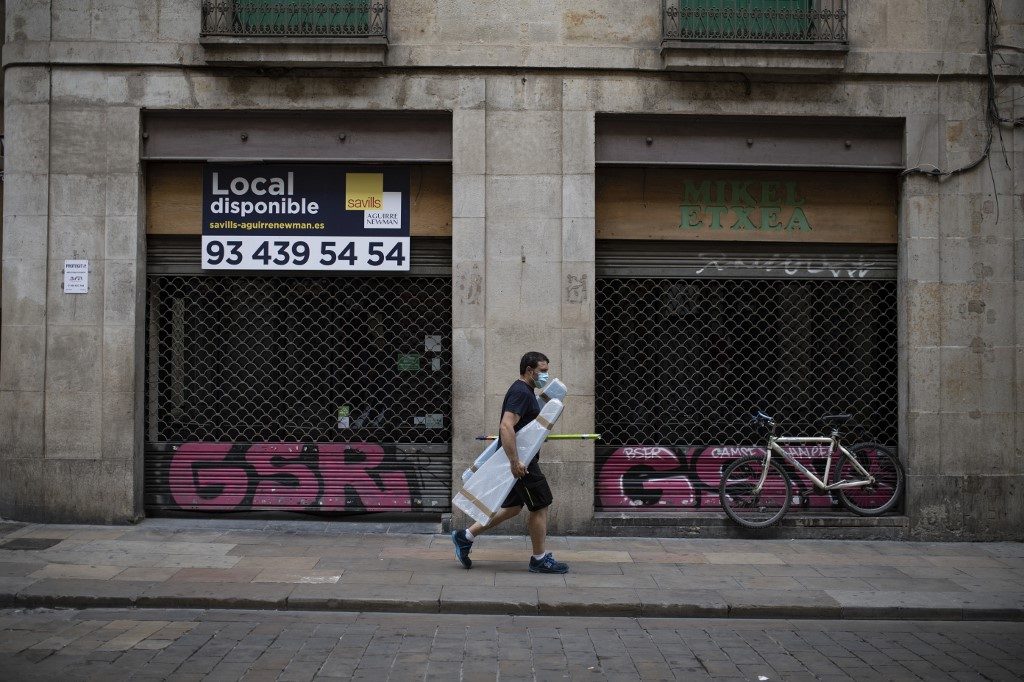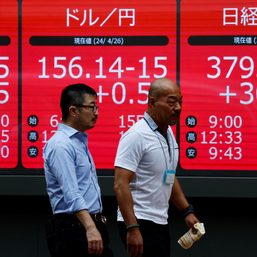SUMMARY
This is AI generated summarization, which may have errors. For context, always refer to the full article.

Spain’s public debt soared in the 2nd quarter to its highest level in at least 20 years as government spending leapt in response to the coronavirus pandemic, official figures showed on Wednesday, September 30.
The government announced that it would have to suspend fiscal rules, which European Union (EU) member states must normally meet, in 2020 and 2021 as a result of the pandemic’s impact on the economy.
“The government has decided to suspend budgetary rules in an extraordinary fashion for 2020 and 2021,” Finance Minister Maria Jesus Montero told a news conference.
Montero insisted however that Spain would maintain a “fiscally responsible” approach overall as figures showed the national debt ballooning to around 110% of gross domestic product (GDP) in the 2nd quarter, way above the EU limit of 60%.
Data from the Bank of Spain put total debt at 1.29 trillion euros ($1.5 trillion), up from 1.22 trillion or about 99% of GDP in the first 3 months of the year.
For much of the 2nd quarter, Spain was in lockdown with the economy in “hibernation” to fight the spread of the virus.
In May, the government acknowledged that managing the pandemic would hammer the public accounts, given the collapse in revenue during the lockdown and a “sharp rise” in expenditure to deal with the resulting economic crisis.
Government estimates see Spain’s debt-to-GDP ratio reaching as high as 115.5% by the year’s end.
Over the same period, the annual public or budget deficit is seen rising to 10.3%, compared with 6.12% at the end of June, which would produce the “biggest deficit since 2012.”
European Union member states are supposed to maintain a public debt of no more than 60% of GDP and keep the public deficit below 3%.
Those rules have been suspended however owing to the overriding need to raise government spending because the pandemic has wreaked havoc with economies worldwide.
Spain has activated a number of key measures to mitigate the pandemic’s impact on its economy, notably an extended furlough scheme.
All together they are set to cost the equivalent of 20% of this year’s GDP.
Although the state of emergency was lifted in late June, Spain is currently fighting a second wave of the virus which has now killed 31,000 people and infected more than 750,000, the highest infection rate within the EU.
Spain plunged into recession in the 2nd quarter when GDP tumbled by 18.5% due to the pandemic.
First quarter growth fell by 5.2%, with a recession commonly defined as two consecutive quarters of a contraction in GDP. – Rappler.com
Add a comment
How does this make you feel?


![[Time Trowel] Evolution and the sneakiness of COVID](https://www.rappler.com/tachyon/2024/02/tl-evolution-covid.jpg?resize=257%2C257&crop=455px%2C0px%2C1080px%2C1080px)












There are no comments yet. Add your comment to start the conversation.